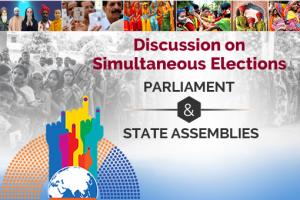- Chandigarh UT
- Creative Corner
- Dadra Nagar Haveli UT
- Daman and Diu U.T.
- Department of Administrative Reforms and Public Grievances
- Department of Biotechnology
- Department of Commerce
- Department of Consumer Affairs
- Department of Industrial Policy and Promotion (DIPP)
- Department of Posts
- Department of Science and Technology
- Department of Telecom
- Digital India
- Economic Affairs
- Ek Bharat Shreshtha Bharat
- Energy Conservation
- Expenditure Management Commission
- Food Security
- Gandhi@150
- Girl Child Education
- Government Advertisements
- Green India
- Incredible India!
- India Textiles
- Indian Railways
- Indian Space Research Organisation - ISRO
- Job Creation
- LiFE-21 Day Challenge
- Mann Ki Baat
- Manual Scavenging-Free India
- Ministry for Development of North Eastern Region
- Ministry of Agriculture and Farmers Welfare
- Ministry of Chemicals and Fertilizers
- Ministry of Civil Aviation
- Ministry of Coal
- Ministry of Corporate Affairs
- Ministry of Culture
- Ministry of Defence
- Ministry of Earth Sciences
- Ministry of Education
- Ministry of Electronics and Information Technology
- Ministry of Environment, Forest and Climate Change
- Ministry of External Affairs
- Ministry of Finance
- Ministry of Health and Family Welfare
- Ministry of Home Affairs
- Ministry of Housing and Urban Affairs
- Ministry of Information and Broadcasting
- Ministry of Jal Shakti
- Ministry of Law and Justice
- Ministry of Micro, Small and Medium Enterprises (MSME)
- Ministry of Petroleum and Natural Gas
- Ministry of Power
- Ministry of Social Justice and Empowerment
- Ministry of Statistics and Programme Implementation
- Ministry of Steel
- Ministry of Women and Child Development
- MyGov Move - Volunteer
- New Education Policy
- New India Championship
- NITI Aayog
- NRIs for India’s Growth
- Open Forum
- PM Live Events
- Revenue and GST
- Rural Development
- Saansad Adarsh Gram Yojana
- Sakriya Panchayat
- Skill Development
- Smart Cities
- Sporty India
- Swachh Bharat (Clean India)
- Tribal Development
- Watershed Management
- Youth for Nation-Building
Discussion on Simultaneous Elections

Start Date :
Sep 07, 2016
Last Date :
Oct 16, 2016
00:00 AM IST (GMT +5.30 Hrs)
The desirability of holding simultaneous elections for the Lok Sabha and Vidhan Sabhas has been discussed at various levels. A considered view is that simultaneous elections will ...


yes the election process in India involves a lot of manpower and money on part of the government .the all the government machinery including defense personnel are engaged for longer period of time bringing all regular and important works and decision making process to stand still in the name of conducting fair elections .in case of both type or all type of elections conducted simultaneously there will a lot of saving in terms of money and manpower.
This Should be done simultaneously. It will save more of our capitols
This country has been wasting much money on elections being held at different times.No work seems to be getting done because either governments are getting ready for elections and do not want to take any long range dicisions or they are too happy to be vvoted into power and they are only interested in seeing they do good for their friends and also themselves. We will be saving a lot of money and time by having elections for loksabha and assemblies at the same time. Time schedule can be organised
Yes they should be held simultaneously & should be for a fixed period.Every 5 years on the same date.
Definately together to save time & money. It will improve Governance and decisions will be faster.
YES - WE SHOULD HAVE SIMULTANEOUS ELECTIONS FOR ALL STATES AND CENTER. Reasons are:
1. High efficiency in governance as well as in conduct of elections.
2. Clarity of Policy for 5 years across Center and States.
3. Massive cost reduction in elections expenditure.
It is good idea and should be implemented.Atleast some expense would be save by this idea
The other benefit I feels is the end to interim elections.
Example: due to difference in timings of elections, the won candidate at assembly level gets chance to contest lok sabha and if he wins leading to interim elections again disturbing the constituency and increasing the operational burden on election commission and fiscal pressure on exchequer which comes due to holding elections even at the lowest level.
Loksabha elections should be held separately from state elections in order to manage them better. All state elections should be held together. Referendum on vital state issues should be made a part of the state election ballots. Remaining elections such as municipal and Panchayat elections along with referendum on local issues should be bunched on a common date throughout India.
Yes, this will save good amount for country. However before that Right to Reject Candidate should be given power. any assembly where Majority is with Right to Reject, parties has to change the candidates.
Further, this will ensure the candidate are not trying for both elections as this promote opportunists politicians without any agenda
this will also give stability and push for implementation for schemes